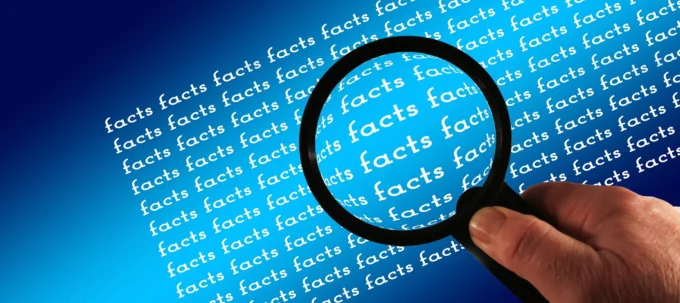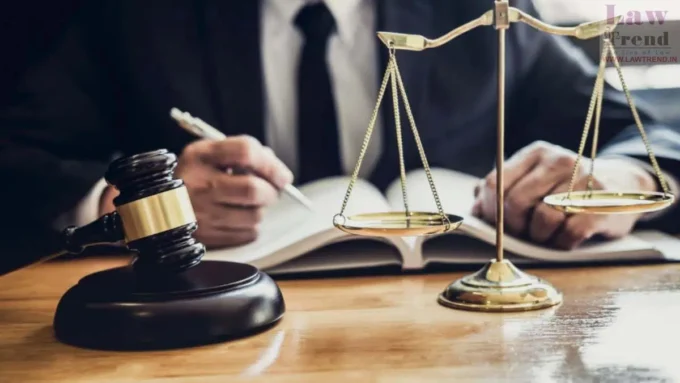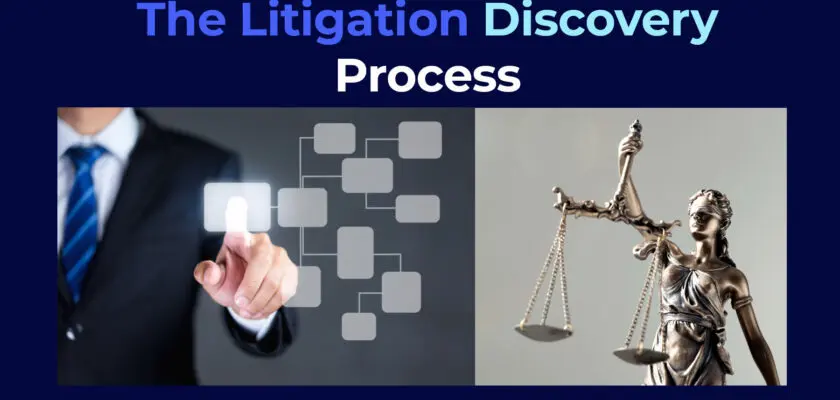The discovery process in litigation is an important step for both parties involved in the legal process. It involves the exchange of evidence and information between the two parties to ensure that all relevant information is presented to the court. This blog post will provide a step-by-step guide to understanding the discovery process in litigation.
What Is The Discovery Process?

Source: pexels.com
In litigation, the discovery process is essential for uncovering the facts of a case. By understanding its purpose, you can make informed decisions about how to address your legal needs.
During the discovery phase, attorneys gather evidence for their clients’ cases by exchanging requests for documents, facts, and other information with other parties involved in the legal dispute. The parties then have a certain amount of time to provide this information or face consequences such as fines or sanctions from a court order.
The most common way for attorneys to gather evidence is through depositions, where witnesses are questioned under oath about relevant facts surrounding a case. Attorneys also use a variety of other tools, such as issuing subpoenas, inspecting and photographing property, requesting admissions, gathering expert reports/opinions, pursuing interrogatories, conducting depositions of relevant individuals, and more, depending on the nature of the dispute.
Although these methods can take time and money, they offer many benefits when done correctly. These benefits include uncovering new facts that may help you win your case, providing clarity on property/assets/intellectual property rights, establishing key timelines for events, helping identify potential witnesses who may have seen things first-hand, and revealing any instances of negligence or incorrect actions. All these factors combined can make it easier for both parties to negotiate settlements outside court proceedings.
Franci Neely, a retired corporate attorney and philanthropist in Houston, emphasizes the importance of protecting your business interests in commercial litigation. “As a business owner, your reputation and financial interests are crucial to your success. It is important to have strong contracts, policies, and procedures in place to minimize the risk of disputes. And if a dispute arises, be sure to communicate effectively and protect your interests through legal counsel.”
Uncovering Facts In Litigation To Build Your Case

Source: wordrake.com
Uncovering facts in litigation is essential for building your case. The discovery process is a critical component of civil and criminal cases, helping parties to understand their roles, uncover evidence, and gain a comprehensive understanding of the case prior to trial. This step-by-step guide will help you understand the various aspects of discovery, so that you can effectively use it in your case.
– First, it’s important to understand the roles and goals of each party – plaintiffs and defendants – in order to conduct discovery properly. Plaintiffs typically seek compensation for damages or relief, while defendants aim to prove that they did not cause harm or breach any contract terms. Knowing these objectives helps to shape how each party approaches discovery.
– Once you are familiar with the roles and goals, learn about pretrial procedures. This includes rules around document production, depositions, interrogatories (written questions), admissions (agreements on certain facts), requests for documents (including emails), physical examinations (if applicable), and objections in response to unreasonable requests by either side during this process. Additionally, research applicable state laws regarding disclosure requirements during this stage, since they can vary from one jurisdiction to another.
– The next step is identifying what types of discovery are available and how to use each type effectively throughout the litigation process. Written discovery allows both parties access to transcripts from previous proceedings that may provide evidence needed for their case; document production gives them access to physical documents such as contracts or emails, while depositions allow oral testimony from witnesses who may have more relevant information than what’s provided through written records alone.
– As part of this process, gather all relevant documents, including transcripts from previous proceedings and witness accounts if necessary. When either side makes unreasonable requests for information that could potentially go beyond what’s allowed by law or impede progress toward resolution of the dispute at hand, consider objecting. After gathering all pertinent materials through written discovery, document production, and/or depositions, analyze the data uncovered during this phase and potential legal strategies based on new information obtained. This will inform how best to proceed with the next steps taken going forward.
– Finally, make sure discovery remains an important interlocutory procedure vital to successful completion of your case.
Preparing For Discovery

Source:facebook.com
The discovery process in litigation can be intimidating and overwhelming. However, with proper preparation and understanding, your case can succeed in court.
Discovery refers to the formal exchange of information between parties involved in a lawsuit before trial. This includes requests for documents, answering questions or interrogatories, taking depositions from witnesses or experts, or submitting written requests for admissions from another party. Discovery aims to ensure both sides have necessary evidence for their case.
To prepare for discovery, gather and organize all relevant information and documents related to your case, such as emails, financial records or contracts. Ensure you have a comprehensive discovery plan that outlines all necessary actions. During document reviews, ask questions to confirm facts and provide clarity around any discrepancies.
Lastly, ensure security considerations are taken when discussing sensitive data during discovery, storing all data securely on secure servers and devices to prevent potential breaches. By following these steps adequately, you can move forward in preparing your case for pre-trial proceedings with confidence.
Meeting The Deadlines Set In Litigation

Source: pexels.com
Litigation is a complex and time-consuming process with many deadlines to meet throughout. Properly completing the discovery process is crucial to ensure all parties receive their due process. This includes requesting documents, answering questions, taking depositions, and submitting interrogatories. The discovery process helps facilitate settlement negotiations and can also uncover valuable evidence or witnesses. To meet all necessary deadlines, each party must understand what documents to request and follow best practices. Summaries provide insight into each party’s strengths and weaknesses, enabling informed decisions for settlement negotiations or trial preparation. This results in faster resolution while ensuring due justice is provided throughout the legal proceeding.
To Wrap Up
The discovery process in litigation is an essential part of the legal process for uncovering relevant evidence and facts for both parties involved. Understanding the different aspects of this process and how to effectively use them is key to building a strong case. With this knowledge in hand, you can confidently navigate through your own litigation matters. Consult with an experienced attorney today to discuss your legal needs and ensure that all necessary steps are taken during discovery to ensure success in court proceedings.

